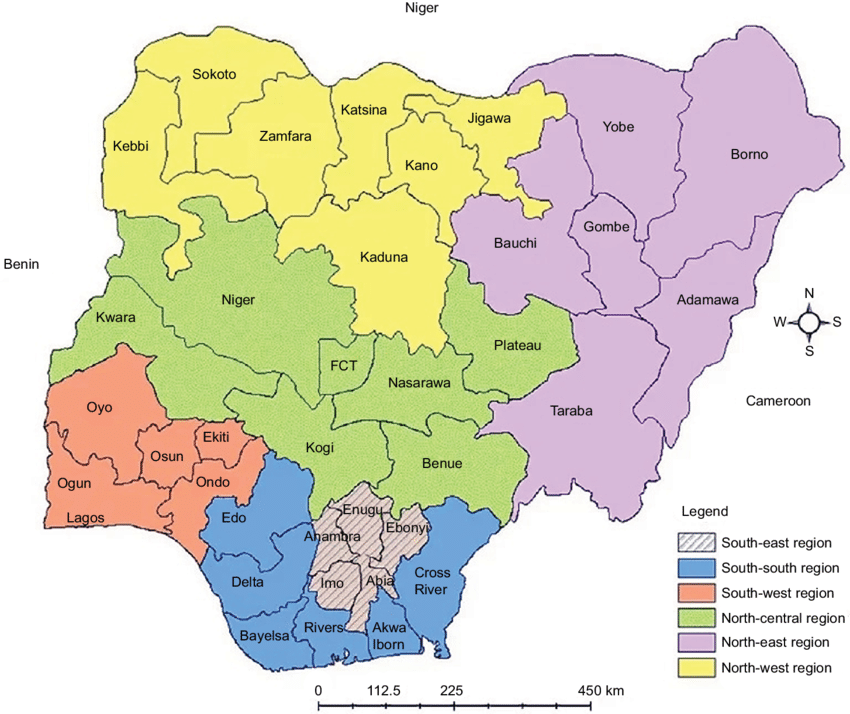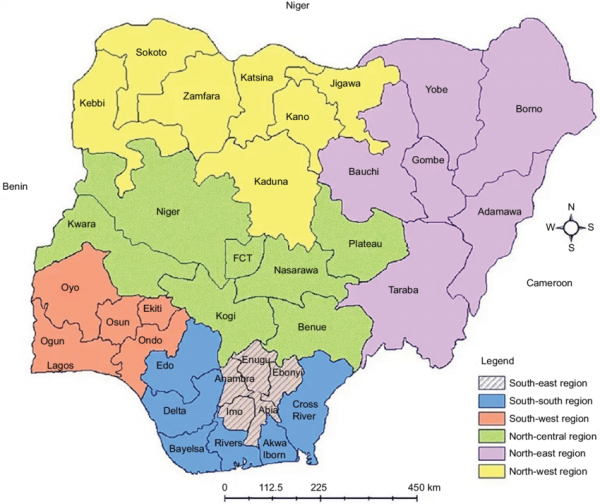Amidst all the talk about devolution of powers going on of late, thought of Nigeria’s six geo-political zones come to mind again. With devolved powers at the federal level, more power will be concentrated in the 36 states & the FCT and in the 6 regions.
Read more about Politics
The peculiarities of Nigeria’s 6 geopolitical zones are not so far-fetched. They are alike in many things and differ in many things. However, the one binding factor of these zones remains the geographical expression called Nigeria.
Nigeria is mainly a geographical expression not particularly because it was a haphazard dream by Lord Lugard but because of the heterogeneous ethnic groups and diversities that it comprises.
Some of the peculiarities of the 6 regions vis a vis data in the recent past are highlighted below:
In the 6 geo-political zones, there are 774 local government areas. North Central has 121 local governments; North East has 112; South-East has 95, South-South has 123. South West has 137 local governments while North West has 186.
The data above shows that North-West geo-political zone has almost double the local governments South East has. The remaining geo-political zones have a fairly varying number of local governments.
Sign up to the Connect Nigeria daily newsletter
The implication of this in national politics is that the North will always have a disproportionate number of representatives coming from each local government cluster at the National Assembly than most states in the South.
A look at the number of candidates contesting for political office at the House of Representatives level also varies by Geopolitical Zone.
As of the 2019 general elections, North West had 1,285 taking up 27% of the total number of candidates that contested for House of Representatives( HoR) seats nationally. South West took up 19% with 902 candidates. South-East had 713 HoR candidates taking up 15% of total candidates.
North Central also with 689 candidates represented 15% of candidates nationally who vied for HoR. South – with 608 at 13% of the total while North East had just 10% of total candidates 482.
All of these candidates vied for a 360 total number of seats at the HoR. These figures alone give a sample picture of political awareness of each region and the level of political participation by their respective populations.
For the Senate arm of the National Assembly, the number of candidates that contested for seats in each geo-political zone also paints a corroborating picture of political awareness and participation.
Out of a total number of 109 seats available in the Senate, 1,903 candidates participated in the elections.
Featured Image Source: Research Gate
Got a suggestion? Contact us: [email protected]


